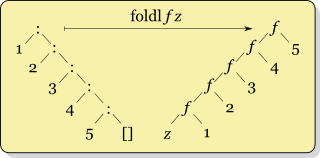An interpreted toy language using ANTLR4 for parser/lexer/AST generation
Currently supports:
-
Dynamic typing
-
Arithmetic, relational and boolean operations
-
Print statement
-
Lists, integers, boolean values
-
First class functions (with closures) : Functions can be assigned to variables, be returned by other functions and be used as arguments.The value of the last expression is returned as the value of the function (like in Lisps)
-
Anonymous Functions: Anonymous function calls and definitions can be used as function arguments and/or be bound to variables
-
Lazy evaluation using delay thunks: Potentially infinite lists can be created this way (though this limited by the maximum recursion depth / stack size of the JVM)
Check the *.vlnt files for sample programs
- Variable assignment:
# Identifiers may be formed from any combination of lower case characters (a-z)
# except for the language's keywords: if,def,lambda,true,false,list etc
a = 5 #assigned to literal/atom
b = f(a) #assigned to an evaluated value
c = lambda(x,y,z){ x + y +z } #binding an anonymous function
d = (lambda (x) { x + x }(100)) # calling an anonymous function "on-the-spot"
- Function definition:
# see test.vlnt for more elaborate examples of functions
def f (x){ #typical function definition
x + x
}
def fibo(x){ # an example function : a fibonacci series generator
# last evaluated element is returned as the value of a function
if x == 1 or x == 0{
x
}
else{
fibo(x - 1) + fibo(x - 2)
}
}
lambda (x,y){ x / y } #anonymous function declaration
lambda (func,x){ func(x) } (f,100) # anonymous function call and a high order function example
- Lists
a = 10
b = list(5,a,lambda(x){ 3 * x }(5))
#Useful list operations:
#Result argument is the list to append the results to (can be an empty list: list() )
map(function,list)
length(list)
filter(predicate,list)
contains(list,key)
#FOLDS:
#The function argument must be a binary function
#initValue is usually the identity value of the function: 0 for add/sub, 1 for mul/div , true for and , false for or
reduceR(function,list,initialValue)
reduceL(function,list,initialValue)
A handy visualisation of right and left folds respectively:


